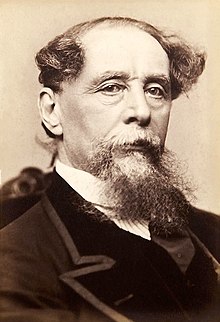Kate Douglas Wiggin
American writer (1856-1923)
Kate Douglas Wiggin (September 28, 1856 – August 24, 1923) was an American educator, author and composer. She wrote children's stories, most notably the classic children's novel Rebecca of Sunnybrook Farm, and composed collections of children's songs. She started the first free kindergarten in San Francisco in 1878 (the Silver Street Free Kindergarten).



Quotes
edit"Penelope's English Experiences, Part One"
editpublished in Atlantic Monthly magazine (January, 1891)
- Salemina is so English! I can’t think how she manages. She is, in fact, more than English; she is British.
- Nothing .. can blot from my memory the profound, searching, and exhaustive analysis of a great nation which I learned in my small geography when I was a child, namely, " The French are a gay and polite people, fond of dancing and light wines.
"A Cathedral Courtship"
editpublished in Atlantic Monthly magazine (May, 1892)
- Aunt Celia is one of those persons who are born to command, and when they are thrown in contact with those who are born to be commanded all goes as merry as a marriage bell ; otherwise not.
- When you have wanted something very much, and didn’t know whether you would ever get it or not, and then all at once you find you have it, you almost wish it hadn’t come so soon!
"Penelope's Progress: Her Experiences in Scotland. Part First. In Town"
editpublished in Atlantic Monthly magazine (January, 1898)
- Lord, I do not ask that Thou shouldst give me wealth; only show me where it is, and I will attend to the rest.
- "She has a nice ladylike appearance, but when she takes her bonnet off she looks seventy years old.” “She ought to keep it off, then,” returned Francesca, “ for she looked eighty with it on.
Rebecca of Sunnybrook Farm (1903)
edit- Miranda Sawyer had a heart, of course, but she had never used it for any other purpose than the pumping and circulating of blood.”
- Great, wide, beautiful, wonderful World,
- With the wonderful water round you curled,
- And the wonderful grass upon your breast,
- World, you are beautifully drest!”
- The soul grows into lovely habits as easily as into ugly ones, and the moment a life begins to blossom into beautiful words and deeds, that moment a new standard of conduct is established, and your eager neighbors look to you for a continuous manifestation of the good cheer, the sympathy, the ready wit, the comradeship, or the inspiration, you once showed yourself capable of. Bear figs for a season or two, and the world outside the orchard is very unwilling you should bear thistles.
Mother Carey's Chickens (1911)
edit- She was fairly good at any kind of housework not demanding brains. (Chapter 20)
- "Mr. Popham is a Methodist and I'm a Congregationalist, but I say let the children go where they like, so I always take them with me." (Chapter 24)
- When I was a little girl (I always think that these words, in precisely this juxtaposition, are six of the most charming in the language) -- when I was a little girl, I lived, between the ages of six and sixteen, in a small village in Maine.
- I knew him at once!—the smiling, genial, mobile face, rather highly colored, the brilliant eyes, the watch chain, the red carnation in the button-hole, and the expressive hands, much given to gesture.
- He had his literary weaknesses, Charles Dickens, but they were all dear, big, attractive ones, virtues grown a bit wild and rank. Somehow when you put him -- with his elemental humor, his inexhaustible vitality, his humanity, sympathy, and pity -- beside the Impeccables, he always looms large. Just for the moment, when the heart overpowers reason, he even makes the flawless ones look a little faded and colorless.